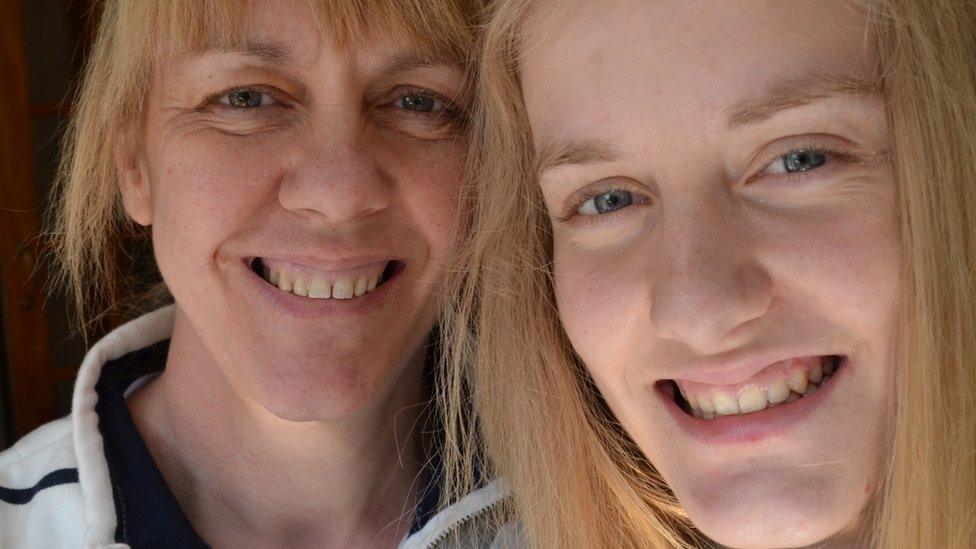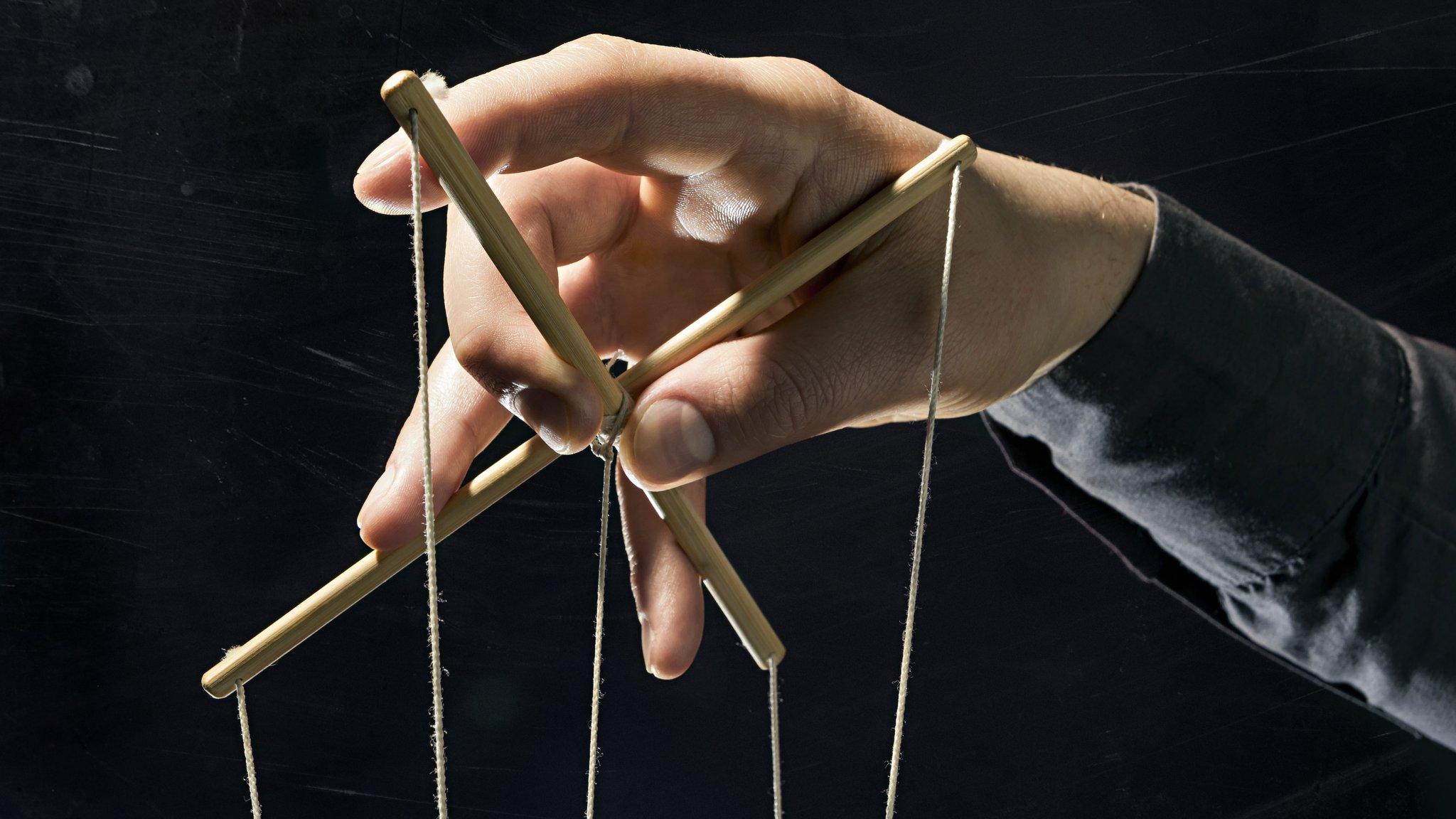Coercive control: How father's abuse turned into murder
- Published
Luke Hart says his father was "always dangerous"
Luke Hart's father spent "most of his time belittling" his family.
He would use money as a way to control them, stop his wife going for coffee, call his daughter stupid and say his sons were not real men.
Then, after years of abuse, Lance Hart killed his wife Claire, 50, and daughter Charlotte, 19, with a sawn-off shotgun in Spalding, Lincolnshire.
Now his son Luke is backing a Welsh Government campaign to raise awareness of the effects of coercive control.
Luke, 28, said his father spent 26 years exerting control on his family.
"It was small things, but every day something wasn't perfect," he said.
"We often couldn't afford the fuel to leave the house, or our mother couldn't afford coffee with friends, so mother was restrained to stay in the house.
"He would use tactics to make us lose our confidence, he would often call Charlotte stupid or pretend Ryan [Luke's brother] and I weren't real men."

Claire Hart was shot with daughter Charlotte in a pool car park days after leaving her husband
But Luke, who set up a charity called CoCo Awareness with his brother Ryan after their mother and sister were killed, said they never realised he would harm the family.
But four days after Claire decided to leave her husband, he killed her and their daughter in a leisure centre car park
"We never thought he was dangerous. We thought he was horrible - a nasty person - but never thought he was dangerous, but that's because we didn't understand that control is at the root of domestic abuse," Luke said.
"Four days after we moved my mother and sister out of the house, he shot them one at a time and then shot himself.
"The violence seemed to come out of nowhere, but control had always been growing and murder is the ultimate act of control, it was the next step on that journey."
Coercive control became a criminal offence in 2015 and 9,053 offences were recorded in England and Wales in 2018, with an average imprisonment of 17 months for those who were prosecuted.
Jane Hutt, the chief whip in the Welsh assembly, said: "Coercive control had been fairly under the radar until recently. With the remarkable support of survivors and partner organisations, we hope this campaign will raise awareness of this toxic behaviour and empower more people to come forward."
Yasmin Khan, a domestic abuse advisor to the Welsh Government, said: "Survivors tell us they feel humiliated by the control they've experienced and this is compacted by the fact it can be hard for them to prove what's happening.
"They describe a 'drip, drip' effect of coercive control - a cumulative build up and escalation, often towards physical abuse, over time."
The Welsh Government said anyone who has experienced coercive control or domestic abuse, can call a free and confidential Live Fear Free helpline on 0808 8010 800 or visit livefearfree.gov.wales, external to message an adviser 24 hours a day, 7 days a week.
- Published29 November 2018

- Published26 November 2018

- Published28 December 2018

- Published1 June 2017
